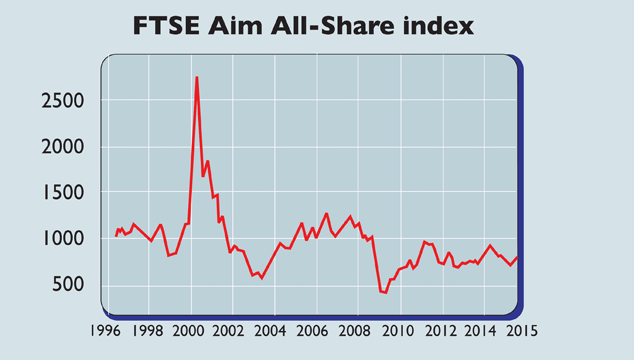
Aim – the London Stock Exchange’s junior market for small companies, formerly known as the Alternative Investment Market – was launched on 19 June 1995 and has been widely hailed as a success. Since its inception, when it had just ten companies, more than 3,580 firms have floated on it.
It currently boasts 1,100 firms worth a total of nearly £73bn. Despite ongoing criticism of its “light-touch” regulation and corporate governance problems, Aim has outlasted domestic and international rivals who grappled with similar issues.
Launched in 2005, the UK’s Plus Market wound down in 2012 following financial problems and was bought by Icap. Foreign competitors, including Germany’s answer to the Nasdaq, the Neuer Markt, and France’s Deuxième Marche, have also disappeared.
However, Aim’s overall long-term performance has been poor, says Hardeep Tawakley in Investment Week. In the past two decades, the FTSE Aim All-Share index has fallen by around a fifth, while the blue-chip FTSE 100 has doubled. Within this headline figure, there has been great variety, thanks to small caps’ volatility and unpredictability.
Notable successes include Asos, an online retailer than rose by a factor of 29 between 2008 and 2014, and Domino’s Pizza, which has quadrupled in five years. But there have also been plenty of disasters, such as the high-profile flame-out in insurance IT specialist Quindell last year. Its shares have collapsed by 75% following attacks by short-sellers and controversy over share dealings by its former management.
Still, the lure of Aim hasn’t been solely about growth stocks – the market also offers attractive tax breaks. Holdings of qualifying Aim-listed stocks are exempt from inheritance tax once owned for two years, meaning that Aim portfolios are often used for inheritance-tax planning. Stamp duty on Aim trades was recently abolished, while shares can now be held in an Isa following a change in the law in 2013.
So what next for Aim? This year has seen the index retreat, amid uncertainty over the result of the general election. But there has been a flurry of new flotations since May, while a robust economy is typically a benign environment for small caps. Still, Aim’s many burnouts are a reminder that it is “a market for stockpickers”, says Tawakley. One fund with a good record is the Marlborough UK Micro Cap fund, run by Giles Hargreave.